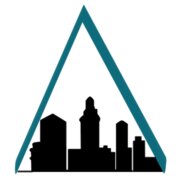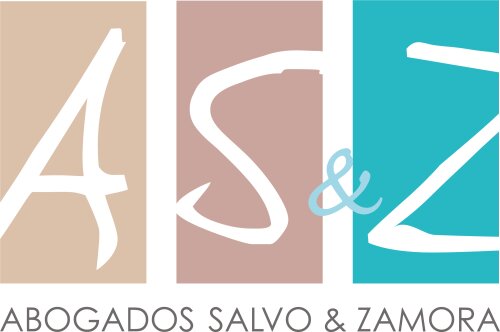Best Juvenile Law Lawyers in Valparaíso
Share your needs with us, get contacted by law firms.
Free. Takes 2 min.
List of the best lawyers in Valparaíso, Chile
About Juvenile Law in Valparaíso, Chile
Juvenile law in Valparaíso, Chile covers legal rules and procedures that apply to children and adolescents when they face protection issues, family disputes, or criminal responsibility. There are two different but related systems: the child protection system, managed primarily through Family Courts and social services, and the adolescent justice system, governed by the adolescent criminal responsibility law (Ley 20.084) and handled through prosecutors and criminal courts with special procedures for persons aged 14-17. The system emphasizes protection, rehabilitation, and the best interests of the minor rather than only punishment.
Why You May Need a Lawyer
You may need a lawyer in juvenile matters for several reasons. If a child or adolescent is accused of a crime, the law guarantees the right to counsel and defense - a lawyer can protect the young person from procedures that could harm their rights and future. For protection cases - such as abuse, neglect, abandonment, domestic violence, or disputes over custody and guardianship - a lawyer can help request urgent protective measures, present evidence before Family Court, and represent the child or parent in hearings. Lawyers also help when dealing with administrative or institutional matters - for example, contesting a decision by a social services agency, negotiating alternative measures to internment, or safeguarding privacy and records. Finally, legal advice is vital when parents or guardians face loss of parental rights or when a minor needs access to services and reparations.
Local Laws Overview
Key legal features relevant in Valparaíso include the following points.
Age of responsibility - Under Ley 20.084 the minimum age of criminal responsibility is 14. Children under 14 cannot be subject to criminal sanctions, but they remain protected by family and social services.
Special adolescent justice procedures - Adolescents aged 14-17 who commit criminal acts are processed under the adolescent responsibility system. The system focuses on socio-educational measures and rehabilitation. Prosecutors from the Ministerio Público handle investigations and may propose measures such as freedom with supervision, intensive supervision, community service, or internment in specialized centers in serious cases.
Family Court and child protection - Family Courts, created under the family court legislation, handle protection proceedings when a child is at risk, as well as custody, visitation, guardianship, and adoption matters. These courts can order protection measures, assign temporary guardianship, or refer minors to specialized services.
Social services and institutions - National and regional agencies - including the Servicio Nacional de Menores (SENAME) and other child protection services - provide assessment, placement, and rehabilitation programs. Local municipal services, schools, and health centers are often involved in coordinated protection plans.
Rights and confidentiality - Juvenile procedures emphasize the best interests of the child, right to due process, right to legal assistance, and confidentiality of records. Juvenile records are treated differently from adult criminal records and often have limited public access.
Frequently Asked Questions
What is the age of criminal responsibility in Chile and how does it apply in Valparaíso?
The age of criminal responsibility in Chile is 14. Adolescents aged 14-17 may be subject to the adolescent justice system under Ley 20.084. Younger children are dealt with through protection and social services. In Valparaíso, as elsewhere in Chile, cases involving adolescents are handled through the regional Ministerio Público and the specialized court procedures that prioritize rehabilitation.
My teenager was detained by police - what should I do first?
Ask for the teen's immediate right to legal counsel and request contact with a lawyer or the Public Defender - Defensoría Penal Pública - if you cannot afford private counsel. Do not sign statements without a lawyer present. Request information about the place of detention and the reason for the detention, and document names and times. Notify the family court or social services if you believe there are protection needs.
Can parents be criminally liable for their childs actions?
Parents are not criminally punished for a minor's independent criminal acts, but they may face administrative or civil responsibilities in some cases - for example, compensation claims or sanctions connected to neglect or failure to supervise. Family Court can take protective measures against parents in cases of abuse or neglect, which can include temporary removal of parental rights in severe situations.
What types of measures can a juvenile court impose?
The system favors socio-educational measures such as supervision, community service, restitution to victims, attendance at treatment programs, and, in serious cases, internment in specialized centers. The goal is rehabilitation and reintegration. Measures should be proportionate to the offense and consider the adolescent's maturity, background, and risk factors.
Are juvenile records made public?
No - juvenile records and procedures generally enjoy confidentiality to protect the minor's future. Access to records is restricted to authorized parties and legal representatives. However, certain judicial authorities and agencies involved in the case will have access for procedural purposes.
What should I bring to my first meeting with a juvenile lawyer in Valparaíso?
Bring the minor's identification - birth certificate and national ID if available - any police or court documents, school records, medical or psychological reports, and a written account of events. Also provide contact details for witnesses, social workers, or school officials who can support your case. This helps the lawyer quickly assess the situation and advise on next steps.
How does a protection proceeding work when a child is being abused?
Anyone can report suspected abuse to Family Court, Carabineros, Fiscalía, or social services. The court can order immediate protection measures - for example, removal from the home, temporary guardianship, or emergency medical care. The judge will evaluate evidence, order assessments, and set hearings to decide longer-term measures, always considering the childs best interests.
Can a minor be placed in an internment center in Valparaíso?
Yes, but internment is a measure of last resort reserved for serious offenses or when less restrictive measures are ineffective. Placement must follow legal safeguards, periodic reviews, and a clear rehabilitation plan. Families have the right to be informed and to challenge internment decisions through legal counsel.
How do I get a public defender for my child?
If you cannot afford a private lawyer, request the Public Defender - Defensoría Penal Pública - at the earliest stage. The office provides legal representation in criminal and adolescent proceedings. You can notify the police or prosecutor at the time of detention or at the first hearing to request assignment of a public defender.
What are my childs rights during juvenile proceedings?
A child or adolescent has the right to legal counsel, to be informed of charges, to remain silent, to a fair and prompt process, to psychological and medical attention, and to have proceedings conducted with respect for dignity and privacy. Decisions should focus on rehabilitation and the best interests of the minor.
Additional Resources
When seeking help in Valparaíso consider contacting or consulting the following types of institutions and services.
Fiscalía Regional de Valparaíso - the regional office of the Public Ministry handles criminal investigations involving adolescents.
Defensoría Penal Pública - regional office for legal defense in criminal and adolescent cases when private counsel is not available.
Tribunales de Familia - local Family Courts that manage protection, custody, guardianship, and family disputes.
Servicio Nacional de Menores (SENAME) - regional offices and community programs that provide placement and rehabilitative services for children and adolescents.
Ministerio de Desarrollo Social and Ministerio de Justicia y Derechos Humanos - national authorities that oversee child protection policies and juvenile justice reforms.
Local municipal social services, school guidance counselors, and health centers - they can provide immediate psychosocial support and refer cases to formal protection channels.
Non-governmental organizations and child protection groups - NGOs in Valparaíso often offer legal orientation, psychological care, and family support programs. Look for organizations specializing in children and adolescents rights and rehabilitation.
Next Steps
If you need legal assistance in juvenile law follow these practical steps.
1. Document everything - Keep a written record of events, names, dates, communications, and any official paperwork or medical reports. Photographs and school or medical records can be important evidence.
2. Seek immediate safety - If the child or adolescent is in danger, prioritize safety - contact Carabineros, emergency services, or request an urgent protection order through Family Court.
3. Obtain legal representation - Contact a lawyer specialized in juvenile law in Valparaíso or request the Defensoría Penal Pública if you cannot afford a lawyer. Early legal advice reduces the risk of procedural errors and protects the minors rights.
4. Engage social and health services - Ask municipal social services, school counselors, or health centers for support. Rehabilitation and therapeutic services are often central to juvenile cases.
5. Prepare for hearings - Work with your lawyer to gather documents, witness statements, and expert reports. Understand what the court can order and what outcomes are realistic.
6. Follow up on decisions - Ensure any court-ordered measures are implemented and request reviews when appropriate. Keep in contact with social services to monitor the minors progress.
7. Know your rights - If you believe rights have been violated, seek immediate legal advice to file appeals or complaints before the appropriate authorities.
Facing juvenile legal issues is stressful, but understanding the local framework and getting the right legal and social support early can make a significant difference. If you are in Valparaíso, start by contacting local Family Court or the regional offices of the Public Ministry and the Defensoría Penal Pública to find qualified assistance.
Lawzana helps you find the best lawyers and law firms in Valparaíso through a curated and pre-screened list of qualified legal professionals. Our platform offers rankings and detailed profiles of attorneys and law firms, allowing you to compare based on practice areas, including Juvenile Law, experience, and client feedback.
Each profile includes a description of the firm's areas of practice, client reviews, team members and partners, year of establishment, spoken languages, office locations, contact information, social media presence, and any published articles or resources. Most firms on our platform speak English and are experienced in both local and international legal matters.
Get a quote from top-rated law firms in Valparaíso, Chile — quickly, securely, and without unnecessary hassle.
Disclaimer:
The information provided on this page is for general informational purposes only and does not constitute legal advice. While we strive to ensure the accuracy and relevance of the content, legal information may change over time, and interpretations of the law can vary. You should always consult with a qualified legal professional for advice specific to your situation.
We disclaim all liability for actions taken or not taken based on the content of this page. If you believe any information is incorrect or outdated, please contact us, and we will review and update it where appropriate.









